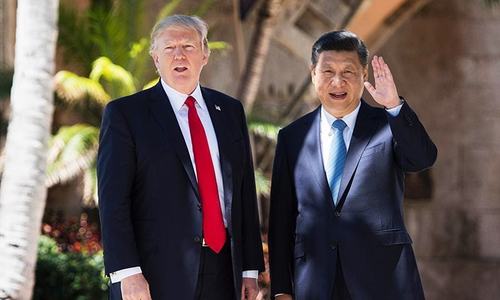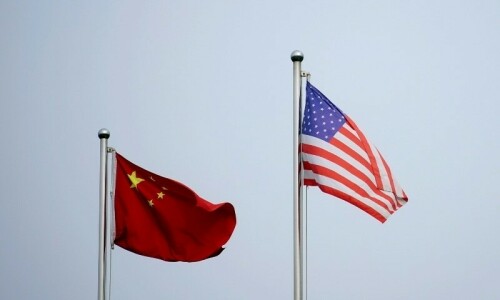JEDDAH: With oil prices hitting $75 per barrel, it was meant to be one of the smoothest meetings Opec has had in recent years.
The night before the meeting, the ministers gathered in Jeddah celebrated with a traditional Saudi sword dance – just as US President Donald Trump had done when he visited Saudi Arabia last May.
Little did they know that Trump was about to spoil their post-meeting party when he tweeted that oil prices had rallied too far.
“Looks like Opec is at it again. With record amounts of oil all over the place, including the fully loaded ships at sea. Oil prices are artificially Very High! No good and will not be accepted!” Trump said on Twitter.
The Organisation of the Petroleum Exporting Countries (Opec) is in the midst of an oil supply-cutting deal with non-Opec producers like Russia that has helped erase a global glut and boosted oil prices to their highest since 2014.
Oil prices fell on Trump’s tweet as market analysts tried to interpret what it could mean for US policies.
Ministers and delegates were having lunch at the time, to celebrate Opec Secretary General Mohammad Barkindo’s birthday, when delegates were alerted to Trump’s tweet.
“We in Opec pride ourselves as friends of the United States,” Barkindo told reporters when emerging from the lunch and asked for his response to the tweet.
An Opec source said delegates were confused by Trump’s stance: “Higher oil prices helped the US oil industry and the Americans themselves. The US oil industry would have collapsed if it wasn’t for this Opec deal”.
UAE’s Energy Minister Suhail Mohamed al-Mazrouei said prices were not artificially high. Asked whether he thought it was fair that the US president was getting involved in Opec matters, he said jokingly: “Since when is it about fairness?”
Trump, a regular twitter user, has never tweeted about Opec before although he has regularly attacked cartels that control prices. The United States is on course to become the world’s largest oil producer but it has never participated in Opec meetings due to tough anti-trust legislation.
Reuters reported this week that Saudi Arabia would be happy to see crude rise even higher to $80 or even $100 a barrel, a sign Riyadh will seek no changes to the supply-cutting deal at a June meeting to set policy.
Ole Hansen of Saxo Bank, said oil had risen to current levels in part because of the risk Trump might pull the US out of an Iranian nuclear deal, thus curbing Iranian oil exports.
Rapidan Energy thinktank said Trumps tweet would initially push non-Opec Russia and Saudi Arabia closer together and assist Riyadhs attempts to prolong oil supply cuts.
“But the intensifying clash will impact US-Saudi relations, Iran sanctions, US-Saudi discussions on civilian nuclear cooperation, and a host of other issues,” it added.
Published in Dawn, April 21st, 2018













































